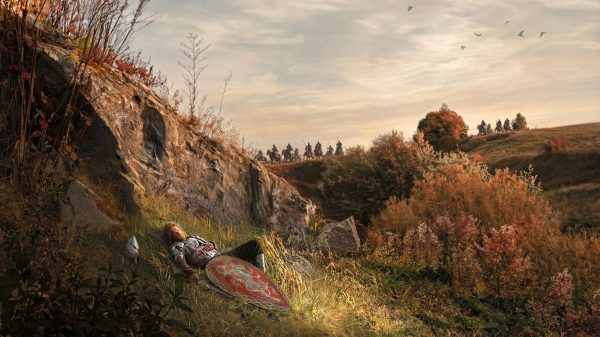
From church halls and gravesides, Welsh hymns would float across the hills when the village of Tonyrefail mourned its dead. But communal singing, like much else, has fallen victim to coronavirus and the south Wales valleys are grieving in silence.
The region, for 50 years an emblem of industrial decline, is one of the UK places worst hit by the pandemic. Official figures show that Merthyr Tydfil and Rhondda Cynon Taf, an area of 300,000 people, have suffered more Covid-19 deaths per capita than anywhere else in the UK since last March.
Five of the neighbouring areas in the valleys, from Port Talbot to Blaenau Gwent, are among the UK’s top six highest coronavirus mortality rates. The region has recorded double the average number of deaths and infections and accounts for one in three of all Covid deaths in Wales, despite making up one-fifth of its population.
Covid death rates in UK by area – graph
In the former mining village of Tonyrefail, the toll has been particularly grave: 53 people died from the virus last year, 24 in December alone, more than any other similar-sized community in England or Wales that month.
The Labour MP Alex Davies-Jones, who has lived in Tonyrefail all her life, said she had lost count of the number of people she knows who have died in the pandemic but that it is “definitely into double figures”. “It’s utterly devastating for the community that I represent,” she said. “Some families have been completely wiped out and it’s heartbreaking, absolutely heartbreaking.”
As another 235 Covid deaths were recorded in Wales in the past week, the question being asked far beyond Tonyrefail is why the valleys have been harder hit than almost anywhere else in the UK.
The most obvious answer is the decades of socioeconomic deprivation that has followed the closure of its once-mighty coal, steel and iron industries. Deindustrialisation left a legacy of long-term unemployment – one in 10 adults are out of work on incapacity benefits – and chronic health issues that are preyed on by Covid-19, including diabetes, obesity, smoking and drug misuse. The picture in former industrial areas across Britain is similarly bleak: their Covid death rate is 30% higher than the national average and 50% higher than London, according to a study by Sheffield Hallam University published in January.
Deaths per capita
Two of Wales’s most senior health chiefs told the Guardian that government policy missteps and at least two serious hospital outbreaks had likely contributed to the alarming number of deaths.
Figures from Public Health Wales provided to the Guardian reveal 157 patients died in an outbreak during the second wave at Royal Glamorgan hospital, with 527 infections linked to the incident – at least three times higher than previous data released in November. Another outbreak, at Prince Charles hospital in Merthyr Tydfil, led to 95 patient deaths and 326 infections. Together, the outbreaks account for almost one-fifth of all 1,384 Covid deaths recorded at Cwm Taf Morgannwg University health board.
Marcus Longley, the chair of the health board, said the Royal Glamorgan outbreak was thought to be one of the worst in the UK at the time but was now under control. “Once these things get into a closed community, controlling them is almost impossible,” he said, adding that hospital staff had received “really unpleasant” abuse over the outbreak.

There is concern that Wales’s 17-day “firebreak” lockdown, which ended on 9 November, was lifted too early and allowed infections to take off. The country’s infection rate doubled, to 400 cases per 100,000, in the month after the national restrictions were lifted. “I think the concern was the fact that it lasted only 17 days and it was ended quite abruptly. I think the general consensus now, with the benefit of hindsight, is that was unfortunate,” Longley said.
Mark Drakeford, the Welsh first minister, said the 17-day lockdown was “shortest but deepest” – in line with scientific advice – and was found to have been more effective than England’s national lockdown in November.
Dr Giri Shankar, the Covid response incident director for Public Health Wales, said the effect of the pandemic on the valleys was “incredibly concerning” and that it had “uncovered some of the stark realities” of life in the communities.



















































Свежие комментарии